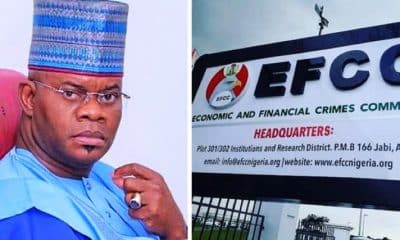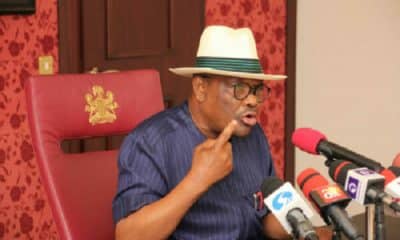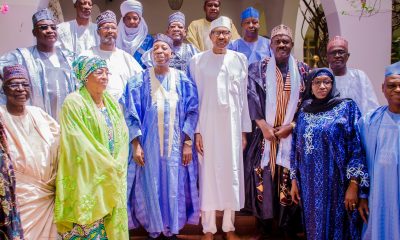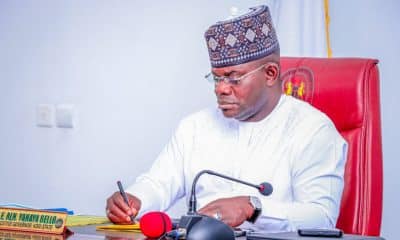Editorial
National Convention: Whither Democracy As APC Goes Consensus
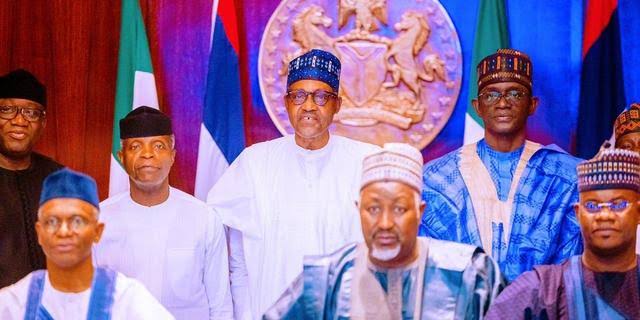
Coming on the heels of political theatrics, mutual suspicions and cold calculations in its top echelon, the All Progressives Congress (APC) will, barring any last-minute hitch, hold its much postponed national convention. The epic event has been at the planning stage since the Adams Oshiomhole-led national working committee (NWC) was unceremoniously dissolved in 2020. While the ruling party is on the verge of disappointing naysayers who anticipated another shift in date, it did not disappoint pessimists who hold the view that there is no democratic fiber in the party’s being. This is on account of APC apparatchik’s preference of consensus as to the mode for constituting members of its NWC. The euphemistic “constituting” was advisedly used as against “electing”. What they have ingeniously resolved to do at Eagle Square, Abuja on Saturday is a flat-out imposition. It is what it is.
Ideally, consensus candidacy is a situation where contenders for a trophy or a position willingly agree to step down for the rival they believe is most qualified. They follow their resignation with a formal agreement or signed pact of no longer contending for the position in question. Instead of this approach, the President is pushing for his anointed to become the next national chairman. APC could have used direct or indirect means to elect its national functionaries but is, unfortunately, opting for imposition which is antithetical to democracy.
This notwithstanding, one of the leading lights of the party attempted to pull the wool over Nigerians by claiming that “consensus is in accordance with the democratic tenets”. This may be correct in its unadulterated form not when it is the disguised imposition of the preferred candidates of the incumbent leadership. It can be recalled that civil society organizations kicked when the Senate introduced the Consensus option in the amended Electoral Bill.
In the words of the Executive Director of Civil Society Legislative Advocacy Centre (CISLAC), Auwal Musa Rafsanjani, “What this means is that only a handful of people will just sit down and say this is what they want and who they want to be the party flag bearer. That is against the spirit of popular participation. I do not support the introduction of consensus option.” While stressing that only the direct and indirect modes deliver primaries that align with democratic principles, YIAGA Africa’s Director of Programmes, Cynthia Mbamalu said, “the idea of consensus negates the principles of democratic and transparent primaries.
“With consensus, you limit the opportunities for other aspirants to contest in a primary. It also subjects the party to a candidate who may not be popular. This introduction of consensus raises a lot of questions because it is not in line with citizens’ demands. The conversation was around direct or indirect,” she said. This obvious fact notwithstanding, Kebbi Governor who chairs the Progressive Governors’ Forum (PGF), Atiku Bagudu, while addressing State House correspondents after the governors’ meeting with Buhari, expressed their “support for Mr. President’s endorsement of the candidate for the national chairman of the party”.
He added that “Mr. President has always urged consensus for all positions… we will support any process that will lead to consensus and the emergence of leaders without the need for an election.” Without the need for elections, really? What is democracy without elections? Isn’t the concept of representation ingrained in elections? What other eloquent way can the ruling party tell her members that count for nothing if not by taking away from them the right to vote in party officials?
Naija News regrets that Buhari, who himself secured the APC presidential ticket in 2014 through the direct primary election, is unabashedly pushing for the imposition when all the aspirants for the national chairmanship position of the APC should have been given a level playground so that party members can have options of who to entrust party affairs. The fact that the President hosted all the aspirants to dinner and ordered a refund of the amount they paid for nomination forms cannot paper over the aspirants’ feeling of denial and hurt. That the very powerful block of entitled governors could kowtow to the President’s preference forebodes peace of the graveyard. It is a clear case of the President’s choice superseding that of the entire party members! Although it was said that aspirants outside the consensus list could still continue with their aspirations during the convention, politicians know too well that contravening even the body language of the party leader amounts to political hara-kiri.
The practice of producing a Unity List for the national convention to affirm usually breeds ill-will that soon snowballs into instability in political parties. From Bisi Akande, John Odigie-Oyegun to Adams Oshiomhole, a supposed progressive party has relied on the conservative consensus method to elect her national chairmen. As the party leadership forced through a supposed consensus arrangement that threw up Oshiomhole as national chairman in 2018, his co-contestants: Oserheimen Osunbor, Ibrahim Emokpae and Clement Ebri, stayed away from what ended up as an “affirmative” convention. The nation cannot forget in a hurry the stormy end of the comrade’s stewardship at the APC secretariat.
In order instances, the cavalier imposition of candidates has forced political bigwigs to defect with their followers to other political parties. The trouble that this generates validates the assertion by the Independent National Electoral Commission (INEC) that 80 per cent of Nigeria’s electoral challenges will be solved when political parties adhere to the tenets of internal democracy.
Addressing a Capacity Building Workshop on Political Party Management and Administration and Party Audit, INEC Resident Electoral Commissioner (REC) in Enugu State, Dr Emeka Ononamadu said, “With proper internal democracy, there will be less disagreement during elections. Those that win or lose in a well-laid out internal party primaries, according to the electoral law, will agree that the process is fair and credible. And there will be fewer disagreements on results.
“However, in a situation where internal democracy is lacking, there will be internal party disagreement or wrangling would start affecting the entire system. There will be chaos and violence emanating from different groups that feel cheated or denied in the political party. The violence will lead to low turnout of voters, and while in the post-election period, there will be electoral suits and counter electoral suits from the same political party”.
As the APC heads to its national convention on Saturday, Naija News calls on the party leadership to be guided by these words. The fallout from that convention has a larger implication for the larger society. As the ruling party, it is incumbent on them to do right by Nigerians. Since it comprises several legacy parties that formed a coalition to end 16 years of PDP’s political dominance, APC will be well advised to stick to the system and process that encourages inclusivity.
It is for this reason that the party must not go the consensus route when it’s time to elect its presidential flag bearer. Having categorically told Nigerians that he has a horse in the race, President Buhari had better not shove his anointed candidate down the throat of his party in the name of consensus. That commotion such imposition will precipitate will not bode well for the party and the country. Naija News warns politicians and political parties never to circumscribe Nigeria’s democratic space under any guise. The right of the people to decide who exercises their mandate must never be arrogated to one person, no matter how powerful!



